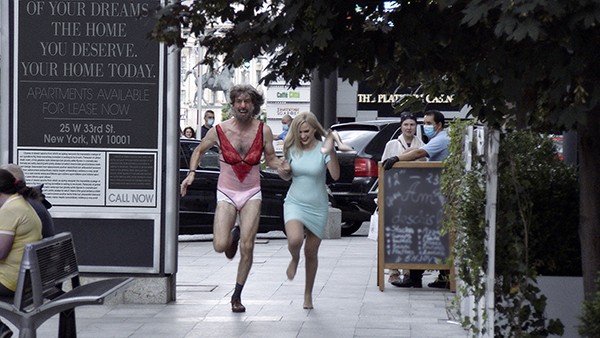In 1831, a French magistrate named Alexis de Tocqueville conned his government, known as the July Monarchy, into sending him on a trip to the United States, ostensibly to investigate the prison system. For nine months, he and a friend traveled through the young republic, making cursory visits to prisons while observing the people and institutions that had grown up in the four decades since the Constitution was adopted.
The French Revolution, which quickly followed the American one, had ended in terror and failure, reverting to a constitutional monarchy. De Tocqueville asked why the United States succeeded where the French had failed. What did it mean for a subject of a monarchy to become a citizen of a democracy? And how, the abolitionist Frenchman asked, did the country that so valued equality and human rights reconcile those views with the institution of slavery? In 1835, he published the first volume of Democracy in America. The book is considered one of the first works of modern sociology and political science, and is required reading for any student of American history.

Maria Bakalova joins the expedition as Borat’s daughter, Tutar.
Around 174 years later, in 2006, “Borat Sagdiyev” toured America in order to make a documentary he could take back to his native Kazakhstan, so the people of that brutal post-Soviet dictatorship could learn what it meant to be a citizen of a democracy in the 21st century. The resulting film, Borat: Cultural Learnings of America for Make Benefit Glorious Nation of Kazakhstan, became something of a modern classic — for some people, anyway. Kazakhstan, and the plaintiffs behind seven lawsuits seeking millions of dollars in damages from the film’s producers, were less impressed. But Kazakh diplomat Yerlan Askerbekov wrote that the film allowed audiences to “get an outsider’s view of the U.S. and reveal the prejudices of the Americans who Borat interacts with, functioning as a sort of 21st century Alexis de Tocqueville.”
Borat is, of course, not really from Kazakhstan. He’s British-born comedian Sacha Baron Cohen. The character Borat first appeared on Da Ali G Show, the British comedy show where Baron Cohen would adopt different personae and do interviews with unsuspecting people in “real life” situations. Airing on HBO in the U.S., it was a game-changer, blending reality television with fairly high-minded pranks. At least, they were high-minded compared to the oodles of prank shows that now infest YouTube.
On the eve of the most important election in America in generations, Baron Cohen brought Borat out of retirement and once again sent him on a tour of America. What he found in Borat Subsequent Moviefilm: Delivery of Prodigious Bribe to American Regime for Make Benefit Once Glorious Nation of Kazakhstan was a country at once familiar and transformed. Since Borat is now a known prankster, he brought along his daughter Tutar (Maria Bakalova) to take point on some of the more delicate operations.
Borat’s mission, as it says in the title, is to bribe Vice President Michael Pence with the gift of a monkey. When the monkey doesn’t survive the trip from Central Asia, Borat decides to use his daughter as the bribe instead. The high point of Subsequent Moviefilm is when Baron Cohen walks into the Conservative Political Action Conference dressed in KKK robes, changes into a rather uncanny Donald Trump costume in the bathroom, and interrupts Pence’s speech with Tutar thrown over his shoulder.
The looks of horror and confusion in the room full of Republican activists are what you want out of a Borat movie. But what comes before is even more shocking. The conference was held at the end of February 2020, and Pence dutifully repeats the administration’s line that only 15 people have COVID, and that the coronavirus was no threat to Americans. As I write this, more than 225,000 Americans have died of the virus, more than any other country in the world. CPAC is suing, but not for that.
Baron Cohen adapted to the pandemic, which broke out while he was filming, by quarantining himself with a pair of alt-right QAnon fans. The scenes are equally funny and queasy. I am not a huge fan of cringe comedy (it makes me cringe), but I found Borat repeatedly wringing laughs from me. Borat is cluelessly retrograde in his social beliefs and mores. This time around, he makes himself the butt of the joke even more than usual, foregrounding Tutar’s arc into a kind of feminism. Bakalova is the star of the instantly infamous scene where she entraps Rudolph Giuliani into what he thinks is going to be a tryst with a naive young reporter in a hotel room. In context, it’s kind of anticlimactic. They’re probably going to get sued again.
One thing’s for sure: Baron Cohen and Bakalova have ice water in their veins. Sometimes their counterparts are not unwitting — scenes with a Black babysitter look more like a pro-am improv session. But when it works, it’s a sight to behold. Subsequent Moviefilm delivers queasy laughs for a queasy time in America. Watch it before or after you vote.
Borat Subsequent Moviefilm is streaming on Amazon Prime.